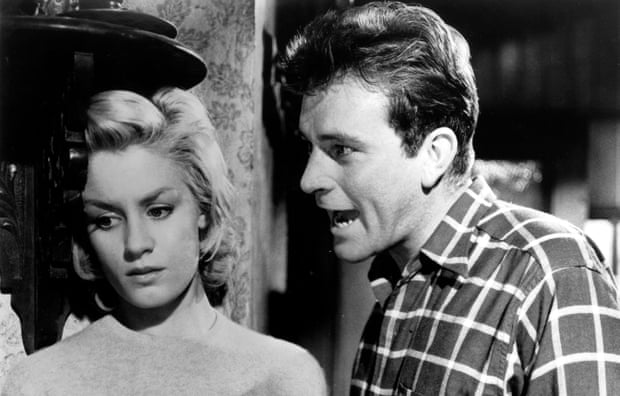The feeling of disappointment towards a class-system, made him angry and to hate everything that has to do with the upper-class, he directed all his anger mainly to his wife, as she represented that part of society.
Porter strongly believes, that such society had not allow him to develop all his well-known talents and to achieve his goals just because of his economic background.
In a society that judges you for your last name, he feels that everything have been already said, his fate leads him to a life full of misery, and this is not only the feeling of one "angry young man", but the feeling of an entire generation of post-World War.
A generation whose childhood was stolen, needs to do something, needs to fight against that system.

Nowadays, we may believe that society have change and that all of what we read in this play remains part of the past, as it's a mid 1950's story, however, even if we live in a different context, and a lot of years have passed, it seem to me that nothing have changed.
No more than a month ago, 724 prisioners were released in Valparaíso.
We may believe that these people only wanted to be free and that they would never come back to jail, however, most of them were not given the opportunity to do something else, and were seen by society as ex convicts that in any moment would come back to commit a crime. The prisioners were released, however they weren't taught how to "behave" outside jail, or maybe the only place were they would feel safe and less judged would be in jail.
So, lets's look back in anger and direct that anger to create something better, a society where everyone believes in achieving the goals that one have even if they seem to be "impossible".

Hi,
ResponderEliminarWhen I was reading your post, I noticed that you mentioned that Jimmy's anger was a feeling that was shared by a whole generation. This idea reminded me of Ginsberg's poem "Howl", since it refers to the general discontent that "Moloch" generates in society.
I believe that what Jimmy does in the play, as you mentioned in your post, is part of a reaction to the unfair situation that he is living, and he fights the world, he fights the system by being violent. This violence is highly related to the violence that's present in Ginsberg's poem, as the voice of the poem tries to fight Moloch by naming it, tries to fight violence with violence, which is just what Jimmy does in the play Look back in Anger.
It is so nice to notice how a play as "Look back in Anger" can show us the discontent of a whole generation that is represented by the character of Jimmy Porter.
ResponderEliminarI agree with you in terms of how that 'anger' should be redirected into something worth, and what I mean is the following. Those 'bad feelings' or feelings of displeasure can become a double-edged sword if people do not how to canalize them. However, if people do understand how to redirect those dangerous feelings, they can breed good things from something that it was working not properly.
I have the idea that something that is known to be as something 'bad' is always an opportunity to improve something or to make things better. Therefore, the unsatisfaction that Jimmy represents is clearly an opportunity that even our current world has, in order to improve or change or remove what is giving this sick society an even worse sickness.
I found your post very interesting and I had to read it multiple times to understand the connection that you made between the recent events that have happened in Valparaiso and the novel by Osbourne, and I have to say that I disagree with you in terms of the connection between those two things because I do find to be true that Jimmy had so much anger about a problem that affected society in those times, and he ended up doing nothing to fix that which is what you encourage us to do; do something with all of this anger that one can have towards society and direct that anger towards something good.
ResponderEliminarHowever, there lies my problem with your post, since you mentioned the situation of the release of hundreds of prisoners from jail because I don't think that by doing that they were something good to society, since those persons where there for a reason and after being released many of them committed a crime one more time and when back to jail, so I don't understand that event reflects a way in which anger can be directed towards doing something good.
I believe that there are other recent events that reflect in a way what you recommend in the last part of your post such as the "Movimiento Estudiantil", movement in which students have reacted towards something they find unfair for the rest of the chilean society and have acted to fix that.